- July 21, 2021
- By Annie Krakower And Matt Gilpin ’19
Fans of the Olympics didn't see spectators or families at the opening of the 2021 Games in Tokyo, but they did find a half-dozen Terps.
The pandemic-delayed international spectacle looks uniquely different amid new health and safety protocols to limit COVID’s spread. Still, alums Abby Gustaitis ’13, a Team USA rugby player; Thea LaFond ’15, a Team Dominica triple jumper; Chioma Onyekwere ’16, a Team Nigeria discus thrower; Diandra Tchatchouang, a Team France basketball player; and field hockey players Grace Balsdon of Team Great Britain and Nike Lorenz of Team Germany are all vying for a place on the podium.
Whether taking up their sport for the first time on campus, or balancing plans to wed at Memorial Chapel with elite training throughout the pandemic, each made their way from the University of Maryland to the pinnacle of athletic competition:
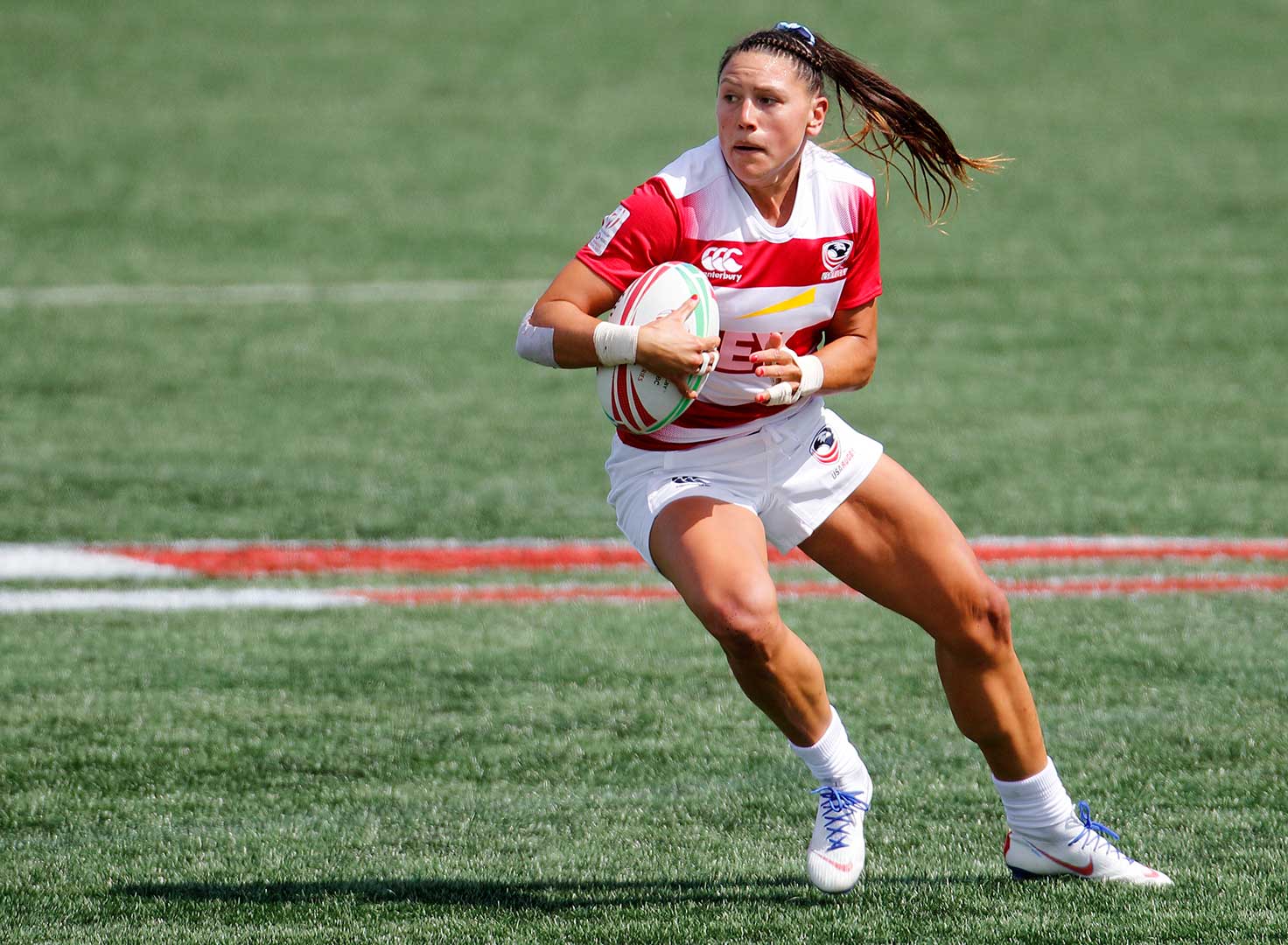 Rugby: Abby Gustaitis
Rugby: Abby Gustaitis
While the Team USA co-captain is a seasoned pro now, it wasn’t until Gustaitis’ time as a Terp that she first tackled rugby.
The White Hall, Md., native was a basketball player through high school, but what she calls the “trifecta” of UMD’s First Look Fair, a dining hall flyer and a fellow student’s encouragement got her to stop by a club rugby practice.
“I just loved it—the physicality, the camaraderie of the team, how welcoming it was,” said Gustaitis, who studied biological sciences. “To be able to play a sport again—I kind of thought that part of my life was over, so it was cool to find.”
Practicing twice a week on the Fraternity Row fields and facing off against other mid-Atlantic schools on Saturdays, Gustaitis excelled at her new sport, earning All-American honors and landing a spot on the local Maryland Stingers club team post-graduation. After a year and a half with the Northern Virginia senior club, she headed to San Diego to train full-time with Team USA in 2015.
The move took some adjusting. While she’d previously played a version of rugby called 15s, which consists of 15-player teams competing in 40-minute halves, the national team played sevens, with, appropriately, seven-player teams and just seven-minute halves.
“It’s completely hectic,” said Gustaitis, who plays the prop and hooker positions. “It’s 14 minutes of action. There’s no timeouts, full contact.”
After getting released from the team just before the 2016 Olympics in Rio, she set her sights on Tokyo in 2020—until the pandemic hit. She abruptly switched to training from home, with her strength and conditioning coach dropping off equipment at the beginning of quarantine, and tried to keep a positive mindset.
“All the athletes at Tokyo will have experienced this same buildup,” Gustaitis said of the postponed Games. With that in mind, she thought, “you can then switch your mentality: a year to be better, a year to work on your connection and cohesiveness as a team.”
The squad finished sixth.—AD
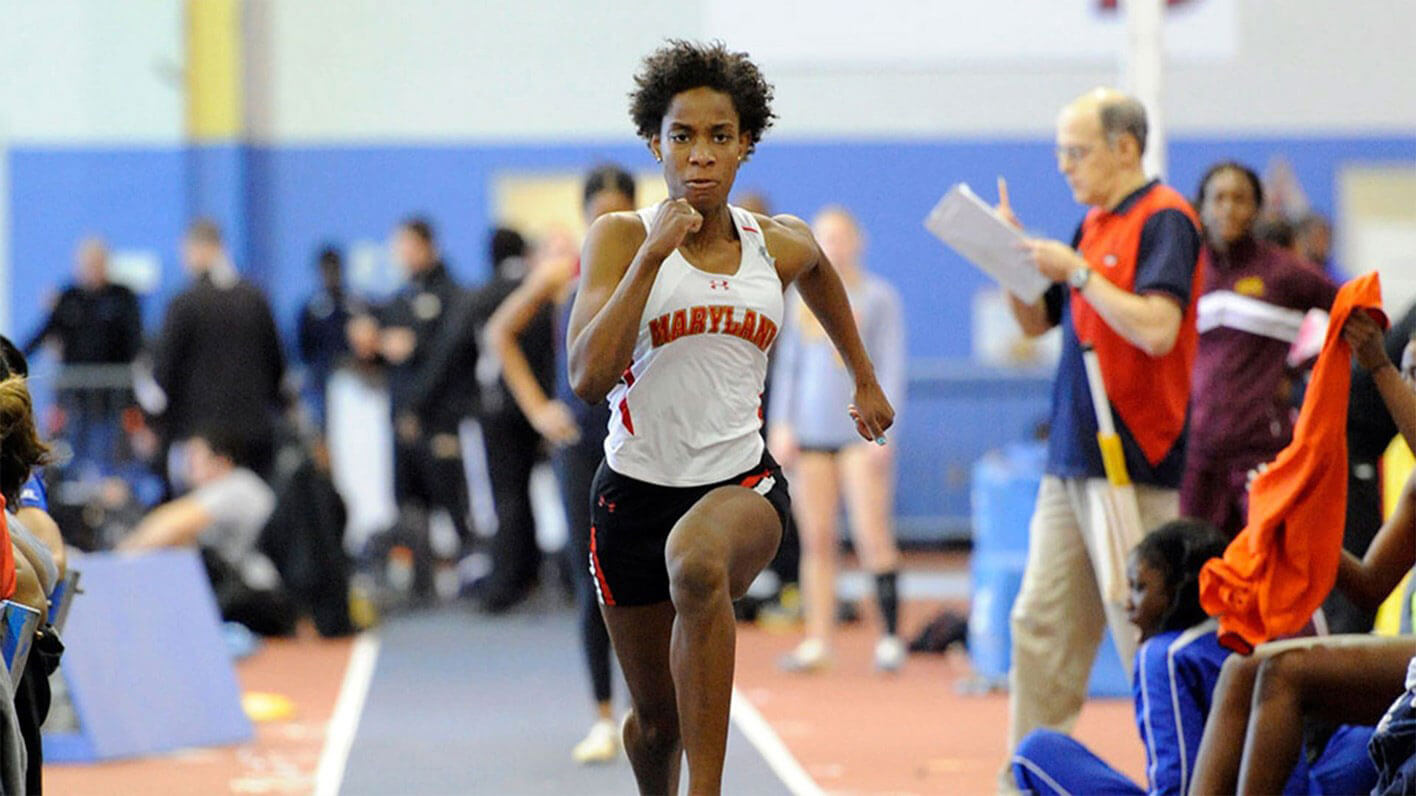 Triple Jump: Thea LaFond
Triple Jump: Thea LaFond
After a letdown in Rio, LaFond was armed with a new technique and ready for redemption in Tokyo.
While most women in triple jump use a “single-arm” approach—think opposite arm and leg, like when you walk—LaFond’s new coach helped her change her form after injuring her hamstring and finishing last in the qualification round at the 2016 Games. Now she swings both arms forward with each jump as one of the world’s only female double-armers.
“It works because I jump more powerfully,” she said. “A lot of guys jump like that. I think it’s odd that women are taught otherwise.”
LaFond, who lived in Dominica until around age 5, started jumping on the track and field team at John F. Kennedy High School in Silver Spring. After growing up taking dance classes, the aerial motions came naturally to her, leading her to try high jump, long jump, triple jump and hurdles.
She competed both for her high school and her native country as a teen before heading to UMD, where she majored in American studies. Though the All-American found success in multiple field events, her coach, Frank Costello—who had also worked with Renaldo Nehemiah ’81, one of the world’s best hurdlers—encouraged her to focus professionally on triple jump.
“I kind of knew that that man knew what he was talking about,” LaFond said.
After graduating, she balanced training with teaching at Kennedy, often using her alma mater’s track after work. The conditioning and her new arm technique paid off in 2018, when she took bronze to earn Dominica’s first-ever Commonwealth Games medal, and at the 2020 University of Albany Winter Classic, where she qualified for Tokyo.
LaFond finished 12th in the final rounds of the triple jump event.—AD
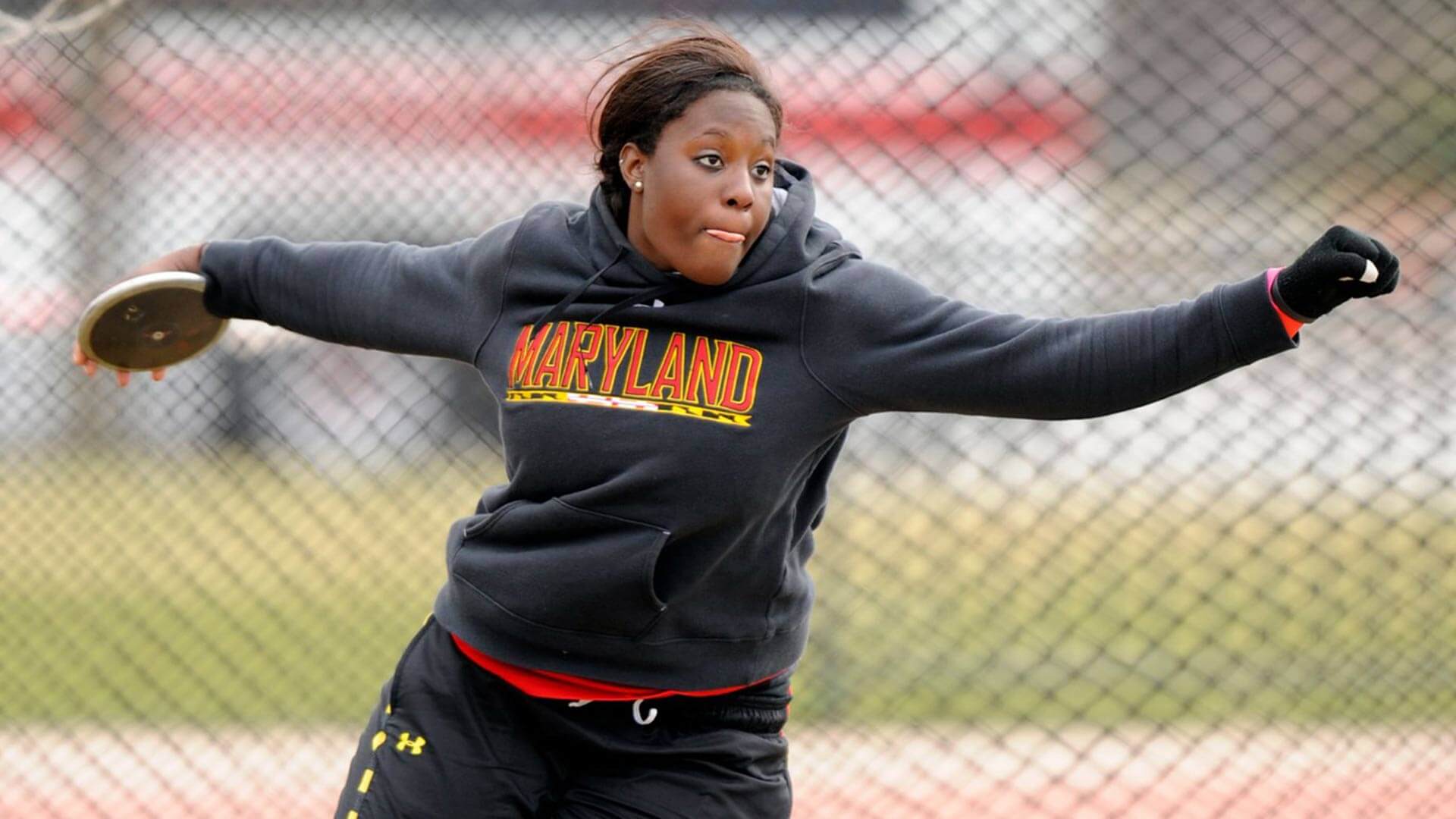 Discus: Chioma Onyekwere
Discus: Chioma Onyekwere
Juggling her work as an engineer with planning two wedding ceremonies and training for the Games might sound like its own Olympic sport. But Onyekwere calls it “good stresses.”
The discus thrower, who was born as a triplet in Michigan and grew up in Nigeria, first got into track and field as a way to condition for soccer, which she played as a high schooler in Fairfax, Va. Though she started as a runner, by her senior year, she had cut all other events to focus on throwing, earning district and regional accolades.
That caught the attention of UMD, where she threw shot put, discus, hammer and javelin—all while juggling a time-consuming mechanical engineering major. Backing from fellow Terps both on the track and in the classroom helped her stay organized and keep up with assignments, especially amid frequent travel for meets.
“I very early on learned how important it is to have a good support system around you in order to progress,” Onyekwere said.
That experience came in handy after college as she joined Team Nigeria while also accepting a position at Ford Motor Company—letting her new employer know right away about her Olympic aspirations. With that understanding, she built up to peak strength, competing at elite events like the All-Africa Games, the African Senior Championship, the Continental Cup and the World Track and Field Championships.
Although her training had to quickly switch from strength workouts in the gym to more technique and body work at home as athletic facilities closed during COVID-19, Onyekwere was able to qualify for Tokyo at the Nigerian Olympic trials on June 29.
Onyekwere, along with nine other Nigerian track and field athletes, was disqualified from competing because Nigerian athletic officials had not conducted enough drug tests in recent months.
"I am beyond heartbroken," Onyekwere said in a statement. "This feels like a bad dream that I can't wake up from."—AD
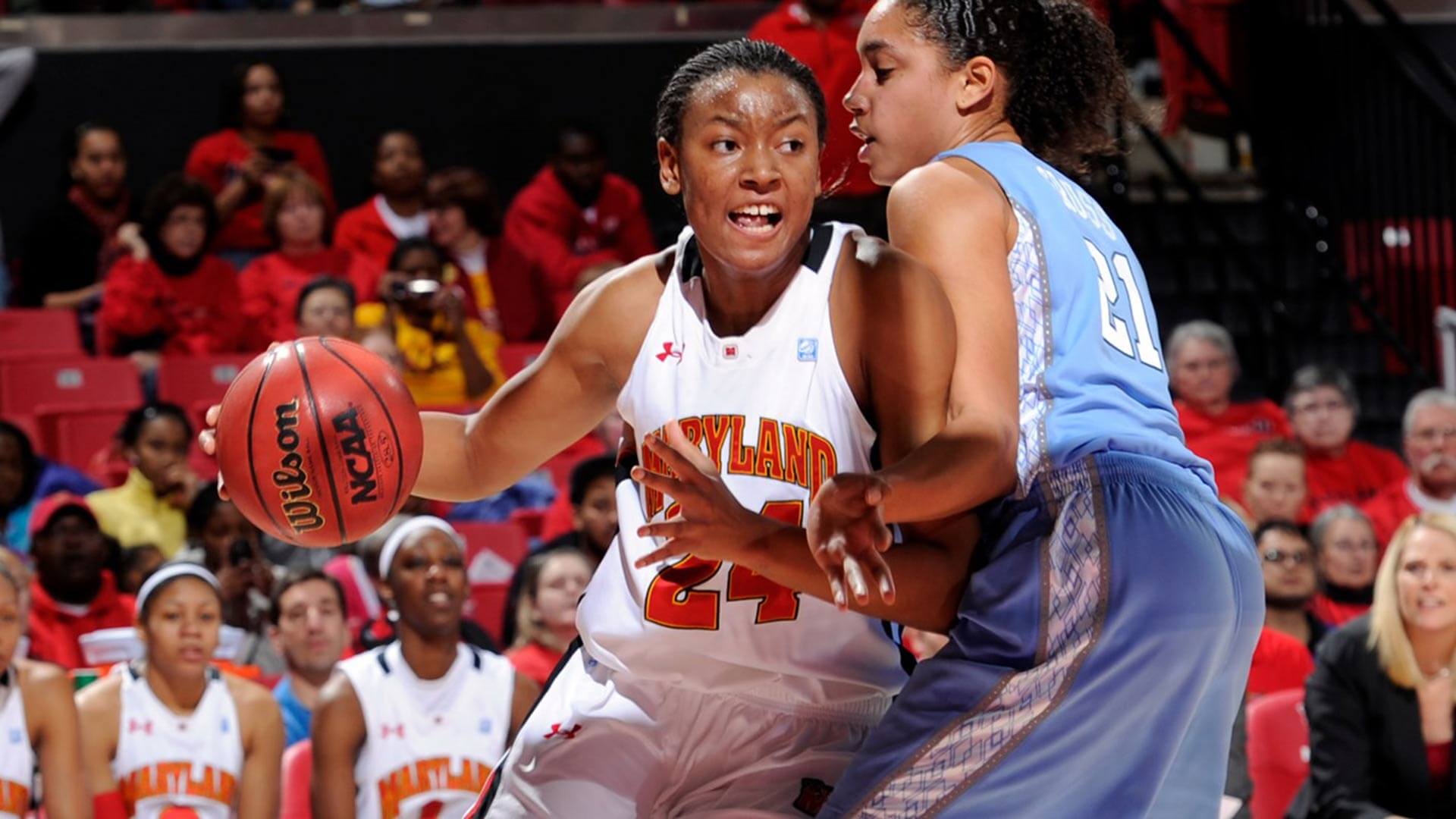 Basketball: Diandra Tchatchouang
Basketball: Diandra Tchatchouang
Tchatchouang, representing France in Tokyo, has been playing international basketball since 2007, when she was named the most valuable player of the U16 European Championship.
She came to Maryland as a touted prospect and played two seasons in College Park before returning to France. She was named to the All-ACC Freshman team during the 2009-10 season and averaged 10.1 points and 5.2 rebounds during her Terp career.
“I learned a lot there, especially regarding basketball,” Tchatchouang said, in French, in a 2019 lanouvellerepublique.fr interview about her time playing in the U.S. “They are the best in the world, and I love to learn from the best.”
In 2013, Tchatchouang was drafted by the San Antonio Silver Stars of the WNBA, but she chose to instead play for her French team, CJM Bourges Basket.
She took bronze in Tokyo as France topped Serbia, 91-76, in the third-place game.—MG
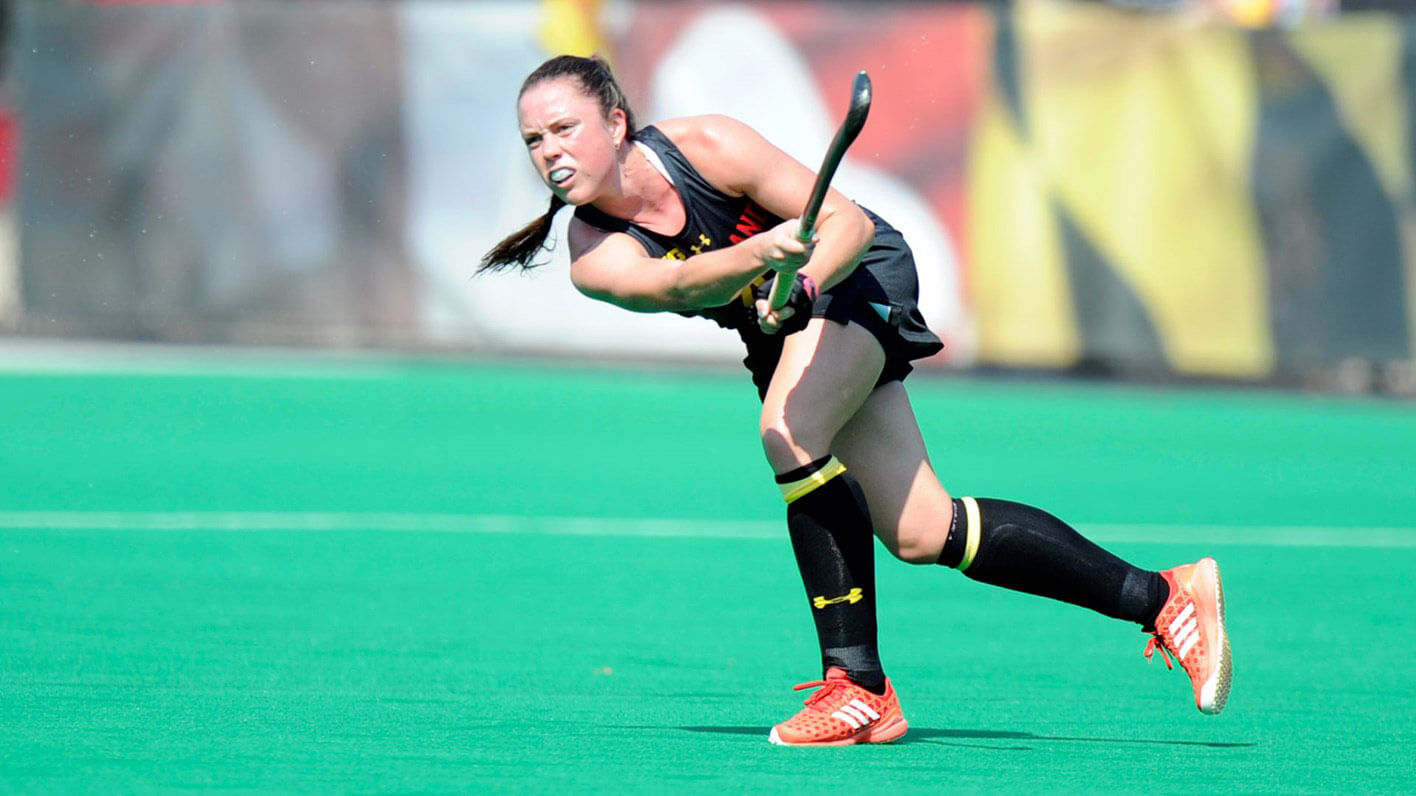 Field Hockey: Grace Balsdon and Nike Lorenz
Field Hockey: Grace Balsdon and Nike Lorenz
The Tokyo Games are defender Balsdon’s first Olympics after she spent time on Great Britain’s U18, U21, World Cup and Commonwealth teams.
During her lone season as a Terp in 2016, she established herself as one of the best defenders in Maryland history and was named first team All-Big Ten, Big Ten defender of the year and a third team All-American by the National Field Hockey Coaches Association.
Balsdon earned bronze as Great Britain defeated India, 4-3, in the third-place match.
Lorenz, a defender, competed in her second Olympic Games for Germany, which won the bronze medal in 2016. Germany was eliminated by Argentina in the early quarterfinals match.
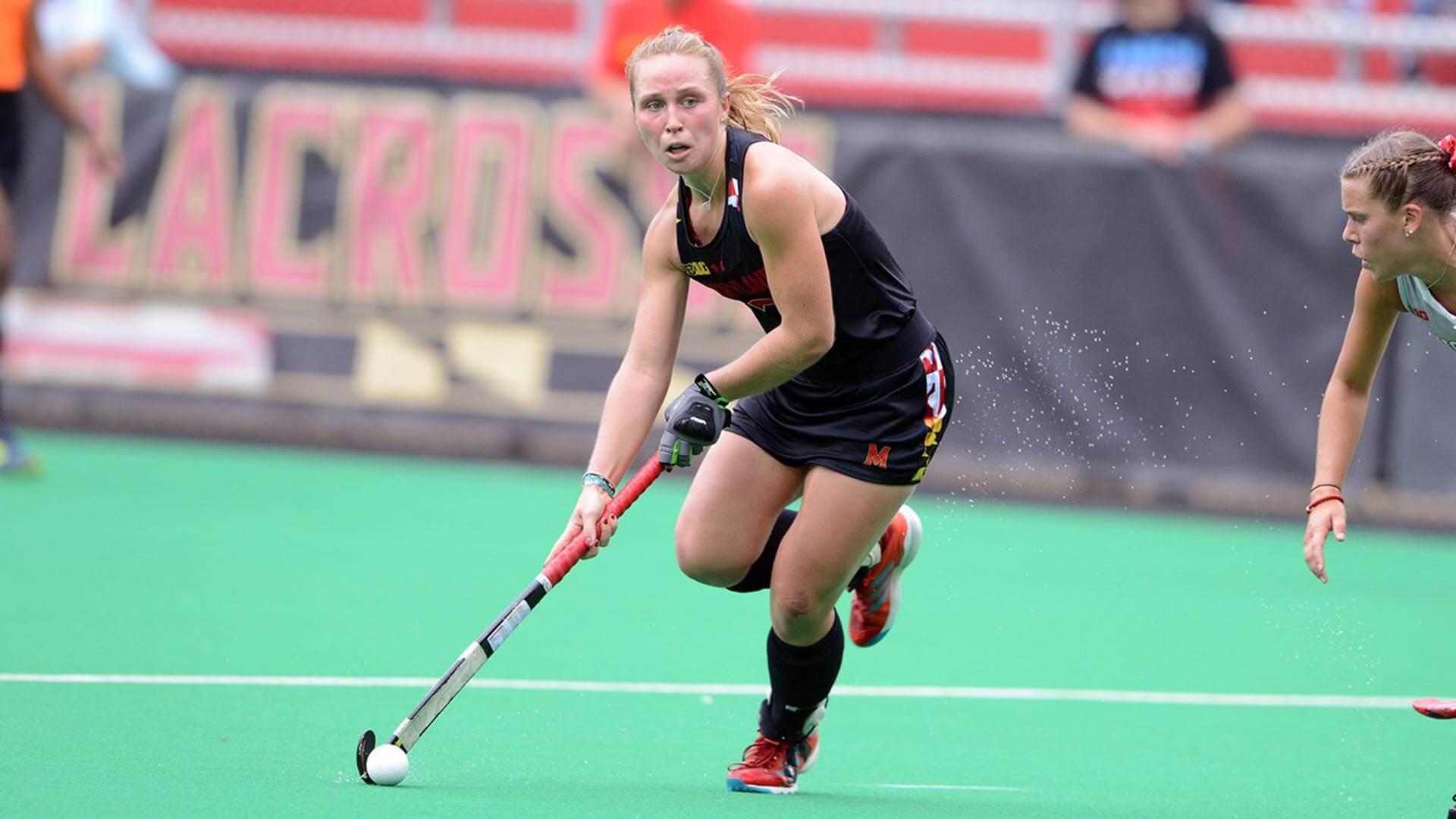 Despite also spending just one season at UMD in 2018, she left an indelible mark. She was a second team All-Big Ten selection and a key part of both the regular-season and tournament championships. Her best game came in the Big Ten semifinals, where she scored a hat trick in a 9-1 win against Ohio State.
Despite also spending just one season at UMD in 2018, she left an indelible mark. She was a second team All-Big Ten selection and a key part of both the regular-season and tournament championships. Her best game came in the Big Ten semifinals, where she scored a hat trick in a 9-1 win against Ohio State.
“Maryland Athletics sends the very best to both Grace and Nike,” said Missy Meharg, longtime field hockey head coach at UMD. “It was a privilege for our players and coaches to be a piece of their world-level opportunities now witnessed in Tokyo at the Olympic Games.”—MG
